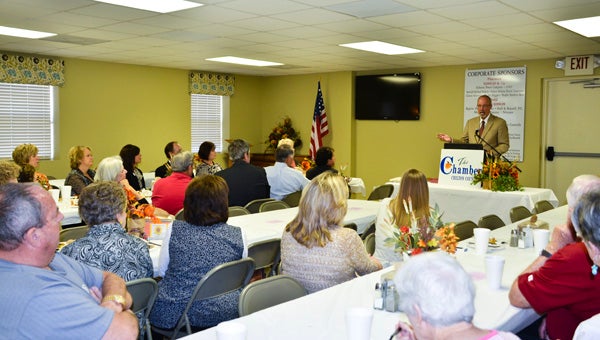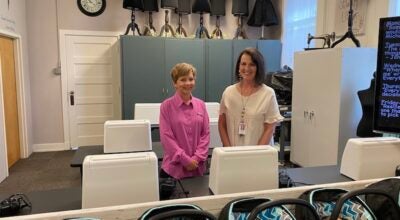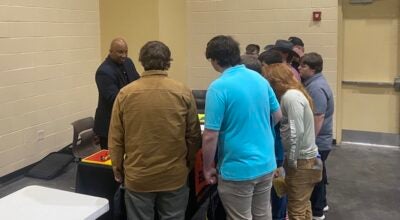State education superintendent speaks at Chamber luncheon
Published 5:48 pm Tuesday, October 1, 2013

Alabama Superintendent of Education Dr. Tommy Bice talks about graduation rates at public schools at the Chilton County Chamber of Commerce luncheon Tuesday.
Alabama Superintendent of Education Dr. Tommy Bice gave guests at the Chilton County Chamber of Commerce luncheon Tuesday an update on the state department’s restructuring of high school graduation requirements in Alabama public schools.
Bice said he dedicated much of his time at the beginning of his term 18 months ago to learning what businesses, industries, colleges and universities need and expect from graduates.
“I spent the first several months on the job traveling the state and talking with business and industry, meeting with colleges and universities, two-year and four-year colleges, asking them one very specific question: ‘What is it about Alabama high school graduates of today that is not meeting your expectations?’” Bice said. “If we’re going to be responsive to the people who get our children, we need to know what their expectations are.”
Bice said he was surprised to discover all parties had nearly identical answers.
“The overarching theme they shared with me was that kids today appear to lack any intellectual curiosity,” he said. “They don’t seem to have the desire to want to continue to learn.
“They just want somebody to give them the answer so they can get on with it. That really bothered me.”
Bice said the biggest challenge in changing learning environments to keep children engaged and in school has been convincing some teachers to alter their methods of instruction, such as allowing students to sit at tables in groups instead of single-file rows of desks.
Bice also used technology as an example of a medium through which children can absorb information as opposed to a teacher presenting lessons only through lectures every day, along with encouraging children to explain how they arrived at the solution to a problem—not simply working a slew of problems without knowing the reasons behind each solution.
“What our graduate of today as we move forward will be is someone who can enroll in and succeed in entry-level, credit-bearing, first-year courses in two-year colleges, four-year colleges, technical schools and workforce training programs without the need for remediation,” Bice said. “That is a huge stake in the ground for us. These graduates will also possess the ability to take what they’ve learned and apply it to real-world situations with collaboration with their peers in solving real-world problems; to critical thinking and understanding the delivery of an efficient and proficient product is important; and they’re able to defend their decision on how they came up with that.”
Bice said boosting the graduation rate is the first step in improving a school system, and educators can help keep students in school through graduation by implementing creative ways of presenting lessons and avoiding the 8 a.m.-to-3 p.m., constant-lecture mindset.
Currently, Chilton County’s graduation rate is about 74 percent, Schools Superintendent Dave Hayden said.
“We want to set up a policy environment that allows school systems to innovate and create,” Bice said. “Be creative as you want to be.”






